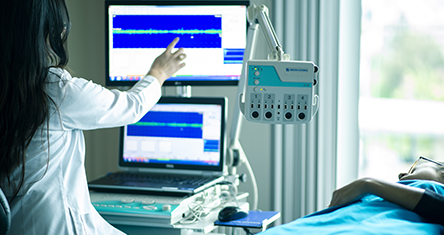In Europe and America, for over 50 years, routine use of the Pap test to screen for cervical cancer during gynecological examinations has reduced deaths from Cervical Cancer by more than 70%. It is hoped with widespread vaccination and improved screening strategies, fewer and fewer women will be affected by cervical cancer and pre-cancers in the future.
Cervical cancer and cervical pre-cancers usually have no symptoms. That is why it is important to have a Pap test. A woman usually does not have any symptoms until the cells turn into cancer and invade the deepest parts of the cervix or other pelvic organs. These are common symptoms in women with fully developed cervical cancer.
When a woman experiences concerning symptoms, a pelvic exam, including a recto-vaginal exam, and a general physical should be performed. If the exam is abnormal, the woman might be recommended to undergo an HPV test, colposcopy and a biopsy, depending upon the results of the colposcopy.
Your Cervical Cancer Diagnosis
You have received a diagnosis of cervical cancer. The amount of information you receive at the time of diagnosis can feel overwhelming. All at once, you may feel there are questions to be answered, decisions to be made, and so much information to be understood.
Working with your Treatment Team
During your treatment, you will come in contact with many health care professionals. These people make up your treatment team. They will work with each other and you to provide the special care you need. Your treatment team may include some of the healthcare professionals listed below.



